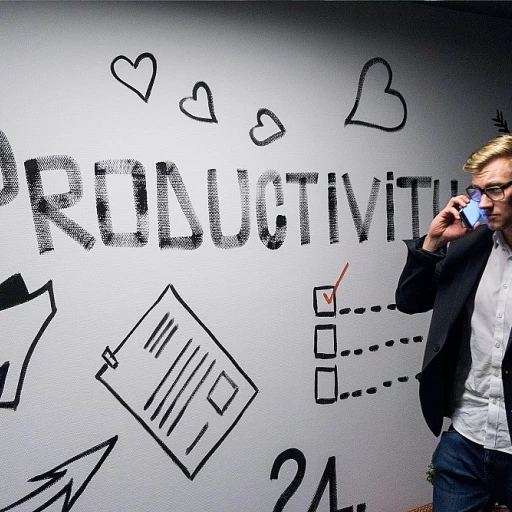Defining Staff Augmentation and Consulting
Unveiling the Frameworks of Staff Augmentation and Consulting in Tech Hiring
In the dynamic landscape of tech hiring, both staff augmentation and consulting play pivotal roles, each offering distinct advantages and functionalities depending on a company's specific needs. These two strategies, while often used interchangeably, possess unique characteristics that can significantly impact the hiring process.
Staff Augmentation involves supplementing your existing team with external professionals who bridge skill gaps and add temporary expertise. This approach allows businesses to enhance their in-house team on a project basis, facilitating more flexible solutions. For those in software or app development, staff augmentation might offer cost effective methods for short term needs as well as long term ventures. The addition of augmented staff can bolster productivity without the commitment of full time employees, providing the agility and specific skills that a project demands. Whether it’s augmenting staff for a specific phase of development or filling in for unforeseen absences, this strategy can prove beneficial.
On the other hand, Consulting typically involves engaging consulting firms to deliver expert advice or execute full-scale projects. Consultants often bring a broader perspective and deep sector expertise, offering both strategic and operational enhancement. Consulting services can encompass a wide range of offerings, from audit and strategy development to comprehensive project execution. Companies often rely on this model when looking to inject outside theories or solutions into their business processes, thus freeing internal resources to focus on core activities.
Understanding the key differences is crucial for selecting the appropriate model that aligns with your business objectives. While both models aim to bolster your team’s capabilities, their applications and the benefits they offer can be significantly different. This understanding sets the stage for making informed decisions about whether to augment your workforce or leverage consulting expertise for your tech projects.
When to Choose Staff Augmentation
Why Opt for Additional Team Members through Augmentation
Choosing staff augmentation in tech hiring can be a smart decision for companies facing a wide range of scenarios. By integrating augmented staff, businesses can address specific project-based needs without the full time commitment required for traditional full time employees.
When companies embark on short term or highly specific projects, particularly those demanding specialized skills like app development or software development, augmentation services can efficiently fill those skill gaps. This method of hiring ensures that businesses have access to expertise and knowledge literally on demand, without having to invest in long term employment contracts.
Benefits staff can experience through staff augmentation include the flexibility to work on varied and diverse projects across multiple domains. For companies, these services allow for a tailored approach to project execution, adapting to evolving project requirements with seamless agility. Given its project-based nature, staff augmentation is a cost effective solution for tech companies that require temporary expansion of their workforce without affecting the internal team dynamics for an extended time.
Furthermore, time employees or part time professionals brought in through augmentation consulting can significantly bolster the house team, injecting fresh ideas and perspectives that may otherwise be overlooked in a closed work environment. By harnessing augmented staff's specific skills, a company can optimize its development process, ensuring that projects are completed efficiently and effectively.
The key differences between staff augmentation and other hiring options, such as consulting or full time employment, lie in its flexibility and cost effectiveness. For more insights into making the right hiring decisions, understanding the role of a screening interview in tech hiring can provide better clarity. Through careful evaluation, businesses can determine when and how to leverage augmented staff to meet critical project demands without compromising the company culture.
When Consulting is the Better Option
Leveraging Consulting Services for Your Business Goals
When your company requires expert guidance or an external perspective to tackle complex projects, consulting services may be the more suitable option compared to staff augmentation. Consulting can be especially valuable when you need to define strategies, resolve business challenges, or when you’re in the process of significant transformation.
Consultants bring a wealth of expertise and focused knowledge in specific domains, such as software development, project management, and business process optimization. This proficiency can be instrumental for companies looking to innovate or adapt rapidly to market changes. Unlike the integration of augmented staff who typically fill specific short-term skill gaps, consultants often work on a project-based framework, providing strategic insights and actionable solutions.
For businesses seeking to evaluate and reshape their existing methods, consulting services offer the advantage of objective analysis that internal teams may struggle to achieve on their own. The external consultants analyze the company’s processes, identifying areas for improvement and crafting tailored strategies to streamline operations.
Despite potentially higher initial costs compared to staff augmentation, consulting services can be more cost-effective in the long term. By solving systemic challenges and optimizing processes, consultants help companies achieve sustainable growth and preserve resources over time.
It's crucial for businesses to assess their immediate objectives and existing resources before opting for consulting. Companies should consider whether the need is for transformational strategies or merely the execution of pre-defined tasks, as this distinction significantly impacts the effectiveness of consulting versus augmentation services in fulfilling business goals. For those interested in exploring how consulting could benefit your tech projects, there are opportunities to delve further through resources like
exploring specific careers that align with your business needs.
Cost Implications and Budget Considerations
Assessing Financial Impacts of Your Tech Hiring Choice
When diving into the financial implications of staff augmentation and consulting, it's crucial to understand their respective cost structures. Both solutions offer unique budgetary considerations that can significantly affect your project's financial health.
Firstly, staff augmentation is often seen as the more cost-effective solution for businesses with short-term or specific projects. By filling skill gaps without committing to long-term financial obligations, companies can leverage augmented staff on an as-needed basis. This approach is particularly beneficial for projects requiring expertise for a limited time, such as in software development or app development. The key difference here is flexibility; you only pay for the expertise you need, precisely when you need it.
On the other hand, consulting generally involves a higher upfront cost due to the premium consulting services provided by experts in the field. Consulting firms bring a breadth of experience and a strategic perspective to the table, which can result in meaningful long term gains for complex business challenges. However, this often means a more significant investment up front. If your company is planning to embark on a transformative project, the long-term benefits may very well justify the associated costs.
Moreover, companies should consider the scope and scale of their projects when weighing the costs. Staff augmentation suits a project-based approach, maintaining flexibility in staffing and shifting budgets towards more immediate, specific needs. Conversely, consulting is ideal for businesses seeking comprehensive, strategic guidance, even if it comes with a heftier price tag.
Ultimately, the decision between augmentation services and consulting not only involves direct financial costs but also how these services align with your company's strategic vision and goals. Carefully analyze which arrangement provides the best value relative to your immediate and future business priorities.
Impact on Team Dynamics and Company Culture
Impact on Team Dynamics and Company Culture
The decision between staff augmentation and consulting services affects more than just project outcomes—it can significantly influence team dynamics and company culture. Understanding how each model integrates with your internal team is critical for maintaining a harmonious and productive work environment.
Staff augmentation involves the integration of external professionals who join your team for specific projects or to fill skill gaps. These augmented staff members often work closely with your current employees, providing a chance for knowledge transfer and skill development. The short term nature of many staff augmentation arrangements means that team members must quickly adapt to new colleagues. This can foster a dynamic workspace, encouraging flexibility and cross-pollination of ideas.
On the flip side, consulting services typically involve experts from consulting firms who offer project-based advice and solutions. Consultants may not integrate as deeply within the internal team, focusing instead on delivering targeted expertise over the project term. This approach can limit direct cultural impact but offers the benefits of an external perspective, potentially fostering innovation and highlighting areas for improvement.
When deciding between augmentation staff and consulting services, consider your company’s culture and how adaptable your team is to change. A close-knit company may benefit more from the collaborative environment created by augmented staff, while a company open to transformative ideas might thrive with consultants providing strategic insights.
Ultimately, the key differences in how these services affect team dynamics should align with your business objectives and culture. Carefully evaluating these implications will help ensure your business direction remains consistent and your team remains motivated and efficient.
Making the Right Choice for Your Business
Selecting the Optimal Approach for Your Business
Deciding between staff augmentation and consulting services is a significant choice that depends greatly on your company's unique circumstances and project requirements. The key differences in these approaches are essential to understand, as the right decision will positively impact your operations.
Staff augmentation is an excellent choice when you have short-term needs or specific skill gaps in your current team. This approach allows you to bring in augmented staff for distinct projects without the long-term commitment of hiring full-time employees. It works well for businesses that require immediate expertise in software development or app development projects, providing flexibility and cost-effective solutions.
On the other hand, consulting services are beneficial when your project demands strategic insight and comprehensive guidance beyond filling skill gaps. Consulting firms offer experienced consultants who bring a wealth of knowledge, helping you drive long-term success by focusing on both the immediate project needs and broader business goals. Consulting can also complement your in-house team by providing specialized development services for more intricate projects.
Ultimately, assessing your team's current capabilities, the scope of your projects, and your long-term business strategy will guide your decision. A balance between enhanced expertise and company culture is crucial for achieving growth and sustaining competitive advantage. In both cases, ensuring seamless collaboration with your internal team is vital for maximizing the benefits of either staff augmentation or consulting services. Embrace a solution that not only addresses your immediate project needs but also aligns with your organizational vision.














